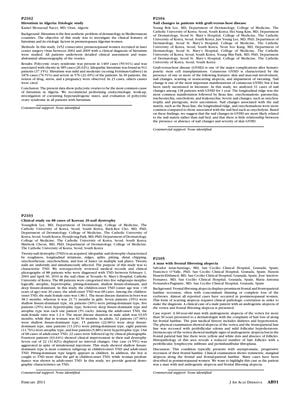Hirsutism in Algeria: Etiologic Study
February 2011

TLDR The main cause of hirsutism in Algerian women is polycystic ovary syndrome, and those affected should be checked for related hormonal issues.
The study titled "Hirsutism in Algeria: Etiologic study" investigated the causes of hirsutism in 2,452 premenopausal Algerian women between 2002 and 2009. The results showed that the most common cause of hirsutism was polycystic ovary syndrome (PCOS), present in 1,469 cases (59.91%), with 385 of these cases (26.02%) also associated with obesity. Idiopathic hirsutism was found in 911 patients (37.15%). The severity of hirsutism was mild to moderate in 1,876 cases (76.51%) and severe in 576 cases (23.49%). Other factors such as medication, stress, and pregnancy were observed in 30 patients, and other causes were cited in 23 cases. The conclusion of the study recommended that patients with hirsutism should undergo an endocrinologic work-up to investigate coexisting hyperandrogenic states and evaluate for PCOS.




